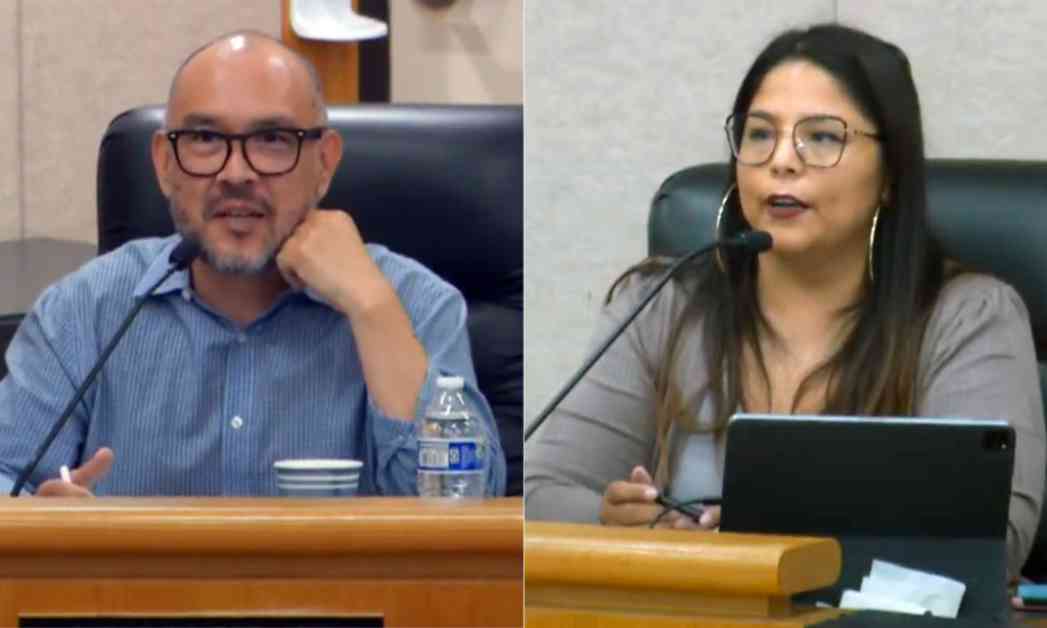Challenges to ‘Liberated’ Ethnic Studies Courses: Addressing Allegations of Antisemitism
In a recent turn of events, newly released legal documents have unveiled troubling allegations of antisemitism within the Santa Ana Unified School District’s Select Committee on Ethnic Studies. The revelations have cast a shadow over the district’s new ethnic studies courses, which were developed behind closed doors and are now facing scrutiny for biased content.
The motion filed in court highlights concerns that students in Santa Ana may be exposed to damaging and biased views about Jews and Israelis, contrary to state guidelines. The 31-page document argues that once such biases are imparted to impressionable youth, they are not easily undone. The legal challenge is led by the American Jewish Committee and the Louis D. Brandeis Center for Human Rights under Law, who are calling for the invalidation of four ethnic studies courses approved by the school board.
The allegations stem from depositions, affidavits, documents, text messages, and emails obtained through subpoenas, revealing derogatory remarks made by members of the ethnic studies steering committee. One committee member referred to the Jewish Federation of Orange County as “racist Zionists” and disparaged the lone Jewish member of the committee as a “colonized Jewish mind” and “stupid.” These remarks, along with others, paint a troubling picture of the committee’s attitudes towards the Jewish community.
Questionable Practices and Biases
The lawsuit focuses on the conduct of the ethnic studies steering committee, which has been accused of operating in secrecy and excluding dissenting voices. School board members Carolyn Torres and Rigo Rodriguez, who have been instrumental in the committee’s work, are said to have promoted a biased and one-sided vision of ethnic studies. Rodriguez, in particular, has been criticized for his reductive views on Jewish Americans and their place in the curriculum.
The committee’s approach, dubbed as “liberated” ethnic studies, has been criticized for categorizing Jewish people as white oppressors and perpetuating a narrative that frames Israel as a modern outpost of white supremacy. Despite objections from state authorities, the committee allegedly incorporated rejected draft materials into the curriculum, furthering concerns about bias and misinformation.
Transparency and Accountability
One of the key issues raised in the legal challenge is the lack of transparency in the committee’s decision-making process. The complaint alleges that the committee operated without public oversight, with meetings held behind closed doors and agendas not made public. This lack of transparency allowed biased content to be approved without proper scrutiny or discussion.
The school board’s hasty approval of the ethnic studies courses, without meaningful debate or public input, has also come under fire. The board’s failure to engage with the concerns raised by the Jewish community and its dismissive attitude towards dissenting voices have raised questions about the integrity of the approval process.
Proposed Reforms and Accountability
In response to the controversy, efforts are underway to strengthen accountability and transparency in the development of ethnic studies curricula. Proposed legislation, such as Assembly Bill 2918, seeks to establish committees with diverse representation to review course materials and ensure community input. While the bill faced opposition and was withdrawn, discussions are ongoing to introduce new measures to prevent similar incidents in the future.
As the legal battle unfolds, the Santa Ana Unified School District faces mounting pressure to address the allegations of antisemitism and bias in its ethnic studies courses. The outcome of the court hearing on the motion to invalidate the courses will have far-reaching implications for the district’s approach to inclusive and equitable education. In the quest for social justice and diversity, it is essential to uphold principles of transparency, accountability, and respect for all communities.
